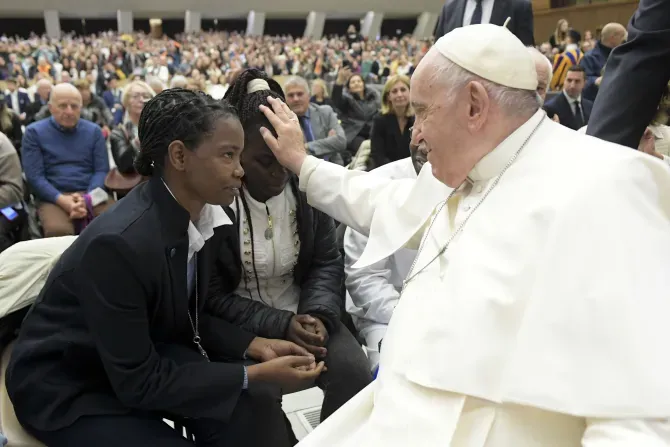Vatican, 10 January, 2023 / 12:04 pm (ACI Africa).
Sickness and vulnerability is scary because it is a threat to the culture of efficiency, Pope Francis said on Tuesday in a message published ahead of the World Day of the Sick.
“We are rarely prepared for illness. Oftentimes, we fail even to admit that we are getting older,” the pope said Jan. 10. “Our vulnerability frightens us and the pervasive culture of efficiency pushes us to sweep it under the carpet, leaving no room for our human frailty.”
“We are all fragile and vulnerable, and need that compassion which knows how to pause, approach, heal, and raise up. Thus, the plight of the sick is a call that cuts through indifference and slows the pace of those who go on their way as if they had no sisters and brothers,” he said.
The Catholic Church will mark the 31st annual World Day of the Sick on Feb. 11, the feast of Our Lady of Lourdes. The Sanctuary of Our Lady of Lourdes in southwestern France is associated with the sick because of the presence of a miraculous spring from which many people have obtained physical healing.
This year’s papal message is titled “Take care of him: Compassion as a synodal exercise of healing.”




 Pope Francis greets a woman in a wheelchair in Rome's Piazza di Spagna on Dec. 8, 2022. Vatican Media
Pope Francis greets a woman in a wheelchair in Rome's Piazza di Spagna on Dec. 8, 2022. Vatican Media



